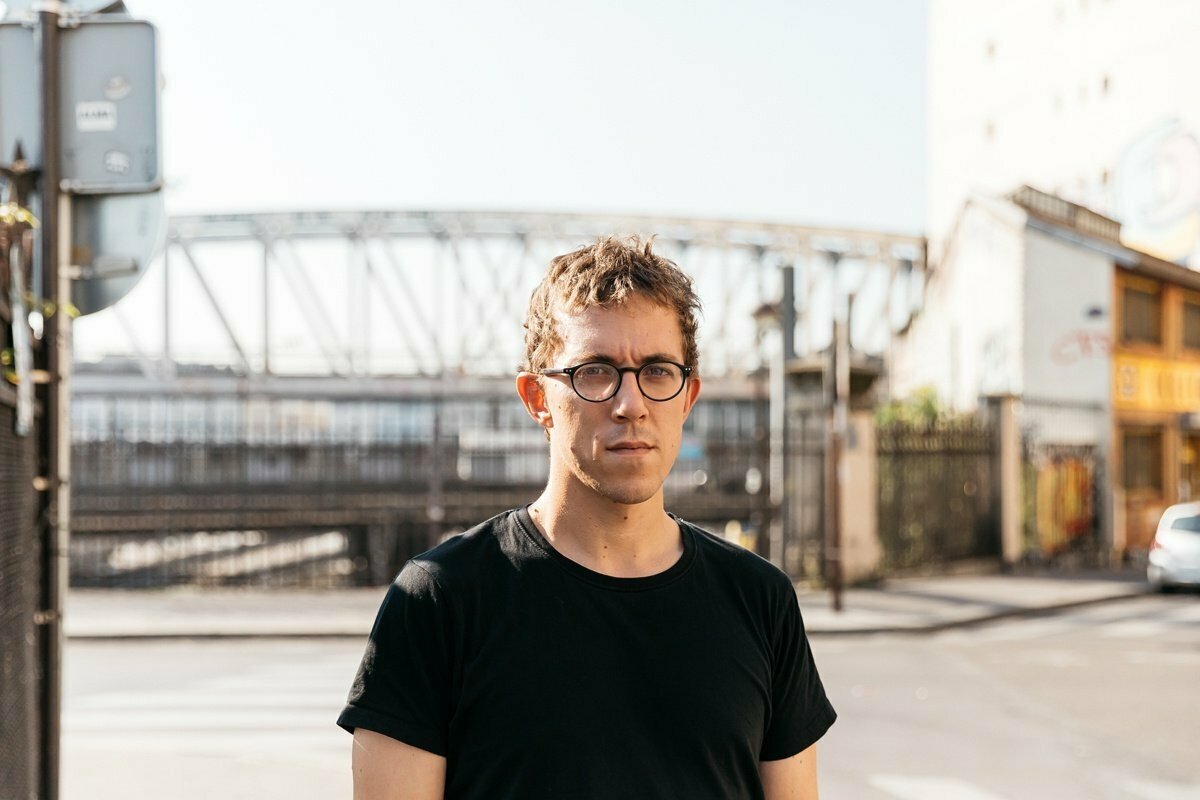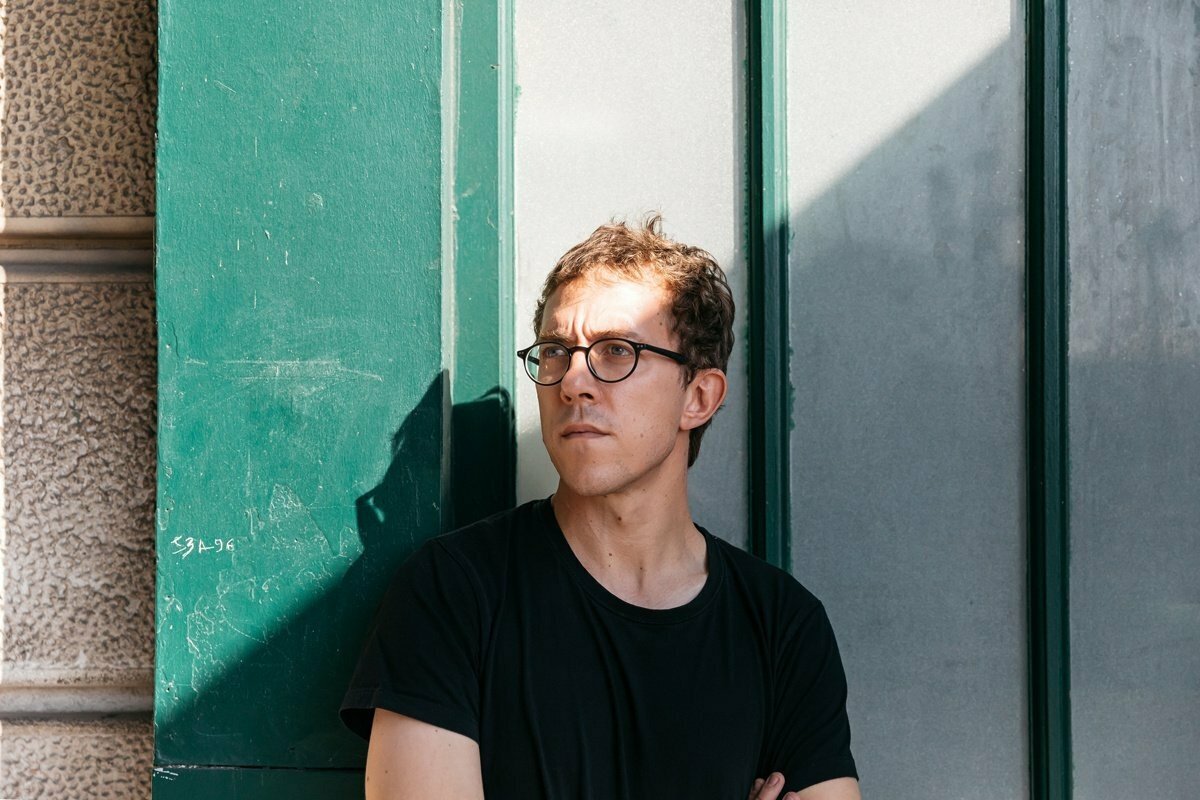Valentin Gendrot: life of an undercover journalist
Oct 19, 2020
9 mins
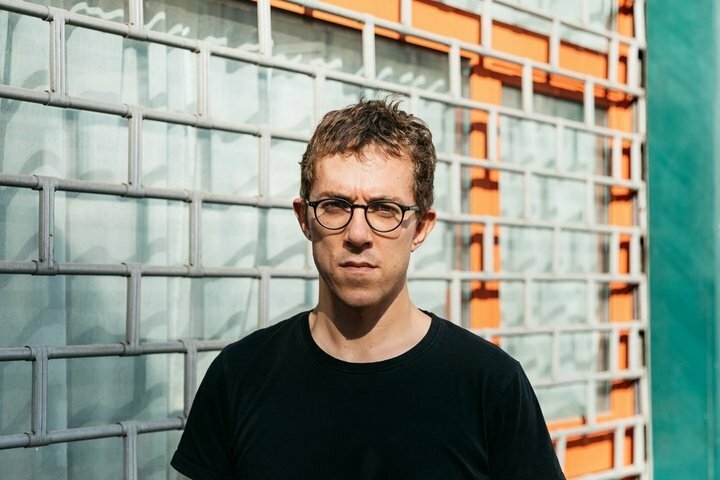
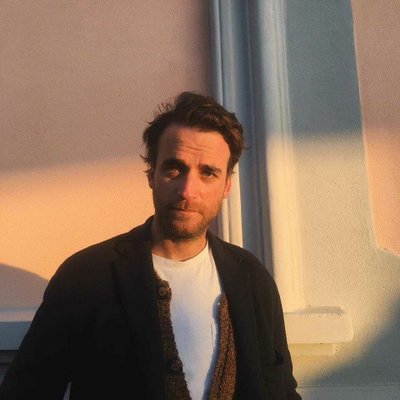
Photographe chez Welcome to the Jungle
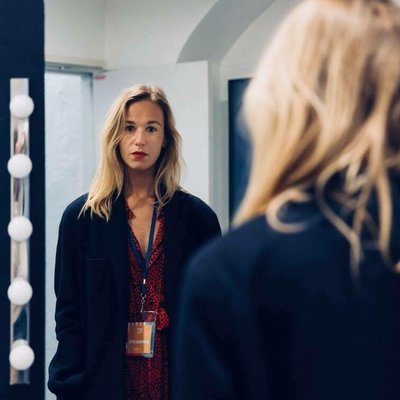
Senior Editor - SOCIETY @ Welcome to the Jungle
For two years, Valentin Gendrot worked as a policeman in France. The 30-year-old experienced it all: the training, the violence, and the exhausting lifestyle. Except that Gendrot was a journalist who specialized in undercover work. Now he has written a book based on his time immersed in the French police force. “Flic”, which translates as “cop”, was published in early September in French. There is no English edition yet. In the book he exposes taboos such as police violence and unrest in the ranks. Beyond that, we wanted to know what it felt like to constantly switch between being a cop and being a journalist. This is what he told us. Here is a conversation about clichés, boredom, note-taking, and a double identity.
How does someone come to want to put on a policeman’s uniform?
Because it’s a major issue in our society. There’s a lot of talk about police violence, but there’s also a lot of talk about the police being unhappy and the high number of suicides in the profession. I wanted to understand this duality. Then there was a real personal curiosity. I had seen police officers on TV, during demonstrations, or standing guard in front of the Elysée Palace or elsewhere. I always wondered: who are these guys? Why did they decide to become police officers? What keeps them going?
In the book, you explain that before entering the police academy you changed some things about your appearance. Does a police officer have a specific look to you?
For each undercover mission, I change something about myself. It’s like donning a mask that protects and reassures me. Then, of course, we all have preconceived notions about certain fields. For me, a cop was someone who was pretty rigid. So to blend in I bought rectangular glasses and I cut my hair very short.
You even refused to have a tooth fixed…
Yes, because I thought that if at some point I spoke too formally or sounded too intellectual, the others would see my bad tooth and think, “Yes, he’s got it as rough as we do.” But that’s because I was training to become an ADS [adjoint de sécurité or security assistant], the lowest rank in the police force.
You were particularly surprised by your training. Why?
Because after just three months of training, you leave with a permit to carry a weapon in public. Also because during the course, we just skimmed over the code of ethics, which covers such areas as impartiality, neutrality, and how to address people respectfully. And it was even worse when it came to domestic violence. Even our trainer said that he was training a “low-cost” police force.
You wanted to work in a police station but first, you had to “vegetate” for 15 months in the psychiatric infirmary of the Paris Police Prefecture. What was life like for you there?
My job essentially consisted of driving an ambulance. The day started at 10 AM but we were not active until about 3 PM. In the meantime, we drank coffee, ate sweets, and chatted. Fortunately, I managed to keep myself busy because I was interested in knowing why the patients were there and what they had done. I took a lot of notes over those 15 months in the psychiatric unit.
You were assigned to a police station in the 19th district of Paris eventually, which is what you had wanted. Was it anything like what you experienced up to that point?
No. The infirmary was really its own bubble. At the police station, I saw things from the first day that left an impression on me: a guy in police custody who asked to go to the toilet and got beaten; an elderly woman who came to file a complaint for domestic violence and was told to return if her husband did it again.
Flic opens with a scene where a migrant is taken out of Paris to be beaten up and left there. You were looking to shed light on police violence, but did you expect to witness so much?
It’s not predictive journalism: you never know what’s going to happen. But what is certain is that I didn’t think I’d witness a real police blunder. Even less so that I would be involved in one.
What do you mean?
One of the police officers I was on patrol with, after being called because some kids outside a building had turned their music up too loud, beat up a 16-year-old black teenager in front of us. The beating continued in the van and at the police station. The next day, an investigation was opened, but we, the witnesses, confirmed a report that cleared the police officer and charged the youth. We had to cover for our colleague––and I went along with it.
How far were you prepared to go with this undercover work?
I don’t know. Forgery in public writing is a crime punishable under the law by 15 years in prison, but I didn’t know that. What I did know is that it would allow me to call out this act of police brutality and to avoid others later on.
You also break the silence about the unhappiness of police officers. How does this translate into daily life?
During my time on the job, one of my colleagues took his own life. That year, 2019, there were 59 suicides: it was the second most affected profession [after farming, editor’s note]. Let me be blunt: to be a cop is to be knee-deep in shit. You deal solely with human misery: domestic violence, family violence, people who have been robbed or assaulted by drug addicts, and seeing dead bodies at 6 AM. And beyond this violence, you feel the daily frustrations of these men and women. Most of them became police officers because they had real career goals: to join the anti-gang brigade, or forensics, or to become detectives. Except that, before they can do so, they have to bide their time and absorb a lot psychologically. That’s if they manage to do so.
You describe very harsh working conditions…
Yes, the rhythm of the work is horrible. You’re doing what they call a 4-2: you work for four days, then you’re off for two days. So you have a weekend off about every month and a half. On top of that, you have to contend with water pipes breaking in the police station, cars breaking down and a lack of equipment because of budget cuts. I’ve seen police officers buy flashlights or gloves out of their own pockets. It may seem small, but on a daily basis, it adds up.
After six months, you were left with certain mental scars. What are they?
Before I went undercover this time, my world hadn’t been violent at all. I was carefree. As a police officer, you live with daily violence. So it distorts your perception of reality; it becomes darker, more anxiety-inducing. I went undercover in the police force, but after a while, the police got under my skin. I became more suspicious, more paranoid. When I take the subway or walk down the street now, I’m watching everything.
Did these difficulties create camaraderie among colleagues?
The happy times I saw were always outside of work. It was the mornings we played football or the evenings when we would go for a drink. But there weren’t many of those.
And how did you behave around them?
I am not an actor. When I’m undercover, I’m exactly the same person: the same laid-back character with the same mannerisms. I was myself and so, yes, I met friendly colleagues. We could tease each other and even laugh together. But we couldn’t be friends because I was still an undercover journalist, so the relationships were uneven. My partner in the psychiatric infirmary was the only one with whom I created a real bond.
How did you manage to keep up a dual identity for two years?
Again, I was not playing a character. I am someone who spends his life actually adapting to situations. I’ve never really known where I belonged. So when I go back to my family I adapt to my social environment, and when I’m in Paris I adapt to my journalist acquaintances. The only difference is that at the police station, yes, I would sometimes force myself to laugh a bit at a joke!
When were you fully a cop and when were you fully a journalist?
I was a cop for two years. I didn’t “play” at being a cop. But when I took the uniform off and went home I made the transition from the street and 100% became a journalist again. In fact, the first thing I did after my working day was finished was to make sure I spent two hours writing notes. On the wall of my studio, I had a calendar with all the days worked and days off. I had a complete view until the end of August, which helped me to look to the future and deal with the shock. Because obviously, this double life was very tiring. When I got out of there, I was completely drained.
Who in your life knew what you were doing?
My family and all my close friends. It was a given for me to tell the people I trust.
When you met someone during those two years, how would you answer the question: “What do you do for a living?”
It would depend. With my landlord in Vincennes or my hairdresser, it was easier to say that I was a cop, for example. Something I also liked to do was to say that I was a police officer to people who were noticeably anti-police. It amused me to provoke them, to spark debate. But more often than not, I continued to say that I was a journalist.
And did you say you were undercover?
When I was in the infirmary, I did, yes. Sometimes in the evenings, I would let my guard down, or sometimes it would be a more conscious act. For example, I talked about it with the officers in my football group. I really wanted to explain to them that I was also doing it to call out their working conditions and certainly not to “shit on cops”! The idea was to show what’s really going on, behind the scenes of the job, why everything is so bad.
How is it different when you tell people you meet that you’re a cop or a journalist?
I have the impression that when you say you are a police officer, there is less trust. In any case, the reaction is automatically a bit extreme: people either love you or hate you, because it’s very divisive. Besides, we’ve seen the way people have reacted since the book’s release!
Which is?
Those who support the police agree about the working conditions that I call out, but when it comes to police violence, for them I’m talking nonsense. The book talks about both, but we remember what we want to remember.
In the past, you have taken on the role of manual worker, door-to-door salesperson, and Lidl warehouse employee [for Cash Investigation, a French TV show investigating practices at big corporations, broadcast in 2017]. Is this eighth undercover mission the one that has left the most lasting impression on you?
Yes, because it lasted two years, as opposed to three months, which was the average, and because I witnessed violence that you don’t see in any other profession. When I went undercover at Toyota as a line worker, it was the physical strain that affected me. In three months I lost 5-6kg. I had pain in my elbows, wrists, shoulders, and lower back. I had 74 seconds to perform my role at my workstation. I had to screw bars and cables, to reach under the car and to bend over constantly. It was really a kind of choreographed movement that drove me crazy. Another undercover mission that really got to me was at Cofidis [a consumer credit company]. I was in charge of debt collection. So basically I was calling people who were over-indebted, unable to get out of debt and that was quite complicated to manage psychologically. But in fact, with all these jobs, I realized that you can get used to everything.
Where does this passion for undercover work come from?
When I was studying journalism in 2011, we analyzed Le Quai de Ouistreham (The Night Cleaner) by Florence Aubenas [a renowned reporter for Le Monde who had gone undercover as a cleaner for the book]. The approach appealed to me. So I did some digging and discovered that other journalists had done it too, including American journalist John Howard Griffin and French writer Albert Londres. For me it was crazy because it allowed me to go to places we never see, to go above and beyond the stories we are given, and to document reality.
What is the secret to your success in these missions?
Before you start, you need to know where you’re going, to get informed, and to read sociology books on workers, for example. Then, the best advice is not to invent a story about your life. You must always be able to hold on to reality and to talk about your experiences. Otherwise in the long run, it will be unsustainable. The only thing I erased on my CV was the word journalist, everything else was true. Of course, you have to know how to lie, or at least omit giving information. But, in the end, the best way to protect yourself is not to talk about yourself, but to get others to talk. Something I also like to do is to come off as an idiot. Because that can help to lower the defenses of the person you are dealing with so that they no longer distrust you.
What would be your Holy Grail of a mission?
I don’t know, everything has potential for undercover missions. I work on what interests me at any given time. As for joining the cops: this desire slowly grew in me after Charlie Hebdo [the satirical newspaper attacked in 2015], the Bataclan [the Paris concert venue hit in 2015], the yellow vests [the French workers’ protests that began in 2018]. At one point, I needed to satisfy my curiosity, so I did.
Do you have any idea what you will do next?
What is certain is that I’m going to stop doing undercover work. It’s very tiring and I need to settle down somewhere permanently. What I would like is for the book to open doors to a full-time writing job in Paris. Because, like many other journalists, ever since I graduated my work situation has been quite precarious.
Translated by Kalin Linsberg
Photo: Welcome to the Jungle
Follow Welcome to the Jungle on Facebook, LinkedIn, and Instagram, and subscribe to our newsletter to get our latest articles every day!

More inspiration: Inspiring profiles
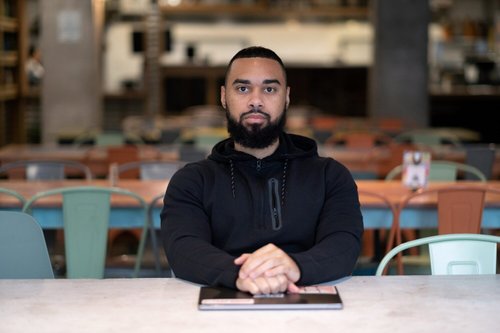
Be real, get ahead: The power of authenticity in your career
Pabel Martinez shares insights on how to allow yourself to be yourself, find your voice, and deconstruct stereotypes at work.
Apr 25, 2024
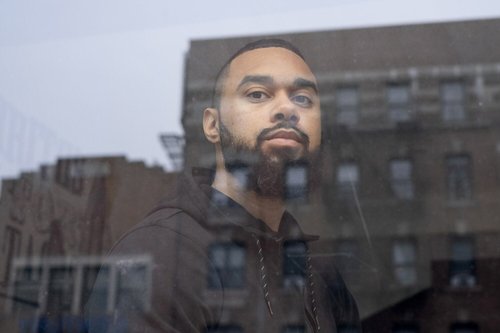
The professionalism paradox: Navigating bias and authenticity with Pabel Martinez
Pabel Martinez challenges the conventional norms of professionalism by unraveling the complexities of workplace discrimination.
Mar 11, 2024
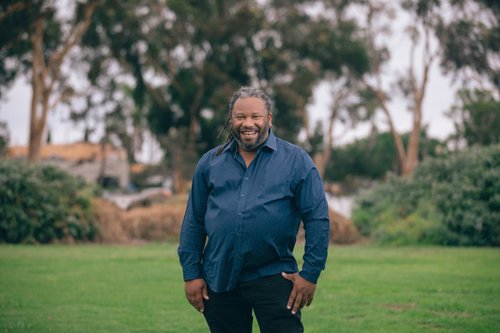
How play can make you happy, creative and productive at work
Work-life balance usually means separating work and play, but it might be a better marriage than you think...
Nov 07, 2023
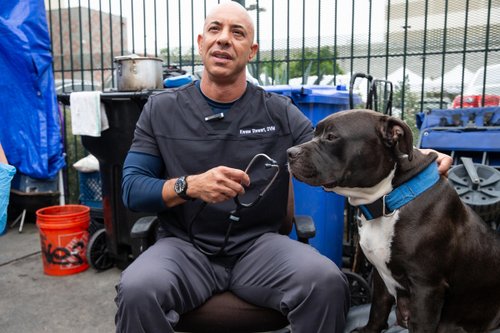
Project Street Vet: Caring for the unseen paws of Skid Row
Providing vet-to-pet care in some of California's largest homeless communities, Dr. Kwane Stewart shares the ups and downs of his remarkable work.
Aug 29, 2023
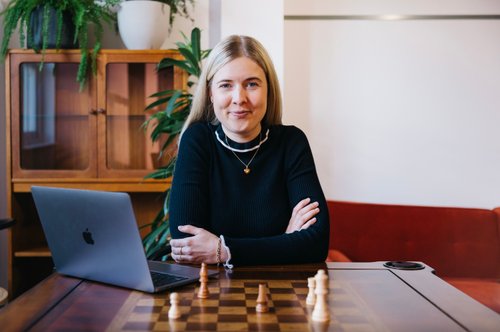
Girls learn how to have fun – and funds – by investing
A Danish trio is fighting gender inequality... on the stock market. We had a chat with one of the co-authors of the book Girls Just wanna Have Funds
Jan 30, 2023
The newsletter that does the job
Want to keep up with the latest articles? Twice a week you can receive stories, jobs, and tips in your inbox.

Looking for your next job?
Over 200,000 people have found a job with Welcome to the Jungle.
Explore jobs
